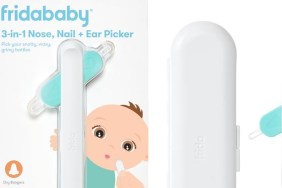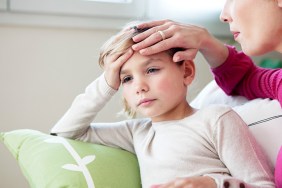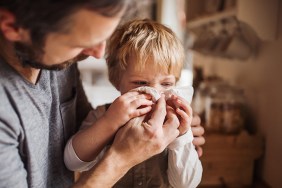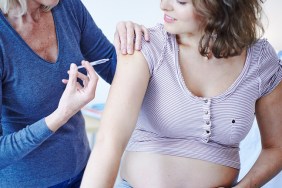RSV or respiratory syncytial virus has been all over the news this week. As cases of RSV reach new highs and are reportedly more serious than ever many parents are wondering why they haven’t heard of it before. Although this common virus spreads from fall to spring – the peak season (right now) spans from late December to mid-February.
If you haven’t heard of RSV you’re not alone. Parents usually don’t know what it is unless they have reason to fear it. RSV can look very similar to the common cold (the virus starts out with upper respiratory symptoms like a stuffed nose, cough, and low-grade fever) but it can turn into a nasty virus for kids with compromised immune systems or respiratory issues like preemies and asthmatics.
For full-term babies, RSV is typically not any worse than a common cold and most children have contracted it at least once by the age of two. For preemies, it is much different. It’s a serious virus that is very easily contracted. When babies are born earlier than 36 weeks, it poses major risks like pneumonia, bronchiolitis, and other serious complications, some that can be fatal.
My preemies were born at 28 weeks, diagnosed with bronchopulmonary dyplasia (BPD) and also had low birth weights, all of which are the highest risk factors for contracting serious RSV. We had to go into complete isolation for their first two winters. It’s a good thing that we didn’t FaceTime people as much as we do now because I’m sure there were people eye-rolling their way through my explanations of our germaphobia during RSV season. After three months in the NICU, I was not about to risk another hospital visit for my tiny kids.
The bottom line is that RSV is very contagious and we have to be vigilant about keeping our kids healthy during RSV season, especially this year with cases at an all time high. It can be spread through physical contact, the air via a cough or sneeze, or by touching an infected object. RSV can live as long as 6 hours on your hands and up to 12 hours on objects, so it is very difficult to prevent exposure.
So here is what moms of kids who are at risk for severe cases of RSV need you to know:
- If you are coming to our house wash your hands when you arrive and then use hand-sanitizer before playing with or holding our kids.
- Please don’t come over if you are currently sick, if you live with someone who is sick, have been in contact with someone who is sick, and/or if you have not been symptom-free for at least seven days.
- If you smoke, we ask that you refrain from smoking just prior to visiting. Experts recommend against passive smoke exposure. Although it’s not second hand smoke, it lingers and can further compromise their lungs.
- If you are parents to a baby or toddler, please don’t bring them to the house during RSV season if they have any cold symptoms.
- Please excuse our absence from events during RSV season, which unfortunately coincides with numerous gatherings, including the holidays. We’re not being rude, we’ve just got to keep our children healthy until their lungs and immune systems are strong enough.
For more information on RSV, how to prevent it and the current numbers you can visit the CDC website.








